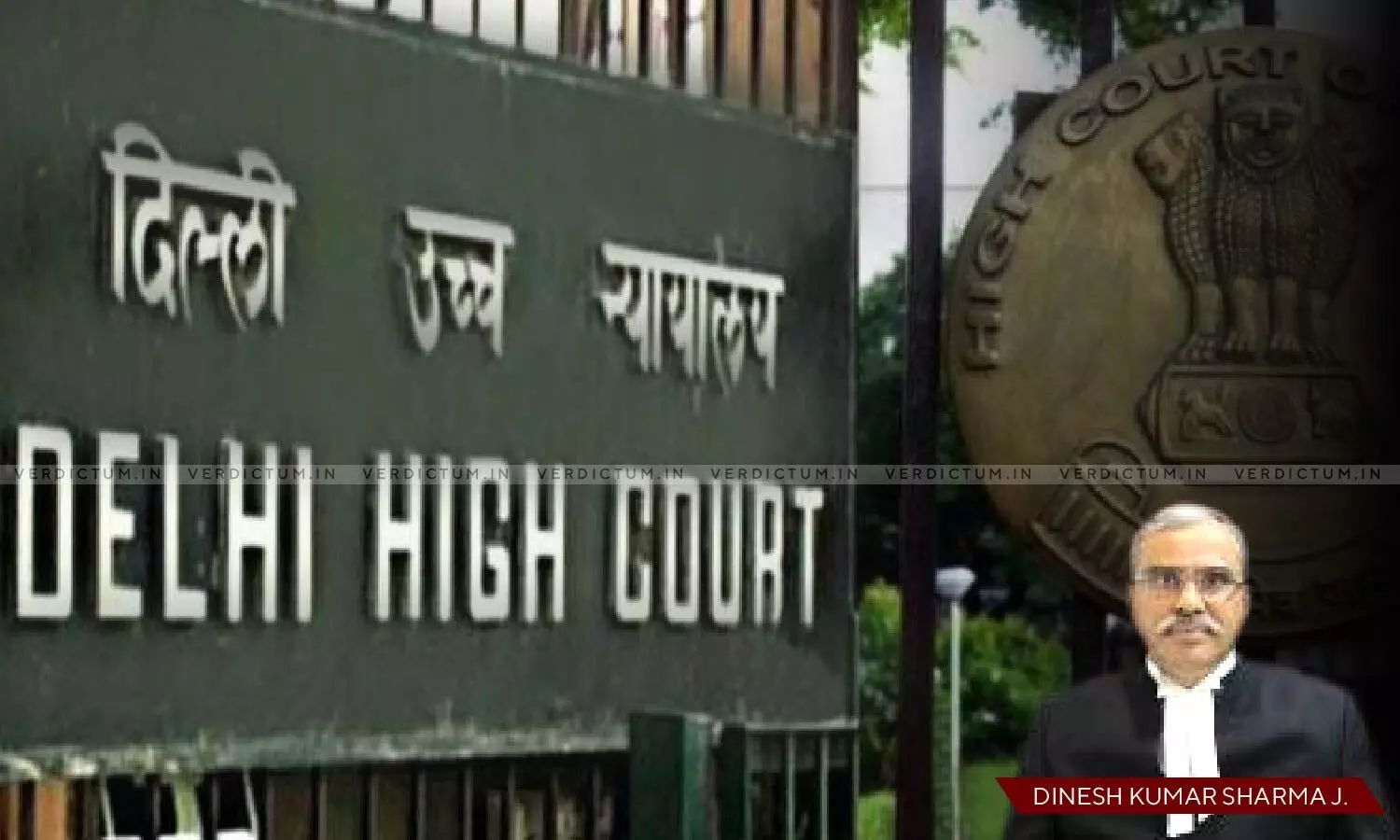
Bail Cannot Be Denied Merely On Assumption That Property Recovered From Accused Must Be Proceed Of Crime: Delhi HC In PMLA Case
 |
|The Delhi High Court observed that the bail cannot be denied merely on the assumption that the property recovered from the accused must be proceed of crime.
The Court was deciding a criminal petition filed by the Enforcement Directorate (ED) under Section 439(2) read with Section 482 of the Criminal Procedure Code (CrPC) against the order of the Trial Court by which the accused was granted bail.
A Single Bench of Justice Dinesh Kumar Sharma remarked, “It is also no longer a matter of debate that the probative value of statement under section 50 of PMLA is to be considered at the stage of trial. The bail cannot be denied merely on the assumption that the property recovered from the respondent must be proceed of crime.”
The Bench said that generally, any observations made at the stage of bail are not taken into account after the parties lead their evidence and the matter is appreciated by the Trial Court.
Special Counsel Zoheb Hossain and Advocate Vivek Gurnani represented the petitioner/ED while Senior Advocate Vikram Chaudhari represented the respondent/accused.
Facts of the Case -
As per the ED case, a letter was received from the Inspector General of Police informing about the registration of FIRs by the Uttarakhand Police for the commission of offences under Section 420 of the Indian Penal Code (IPC) and under Sections 66C and 66D of the Information Technology Act, 2000 (IT Act). The preliminary investigation revealed that it was a case of large-scale money laundering wherein public money was looted through apps such as Power Bank App, Tesla Power Bank App, Ezplan, etc., by luring people with the promise of doubling their money in a short period. Initially, the public received 10-15% of the deposited amount as interest; however, after some time, they stopped receiving any money, and the executives of these apps became inaccessible. Allegedly, the money deposited by the public was further transferred to the bank accounts of various shell entities through payment gateways such as PayU and Razorpay, as well as through regular banking channels.
It was further alleged that the proceeds of crime (PoC) of approximately Rs. 250 crores were collected via Razorpay from more than 5 lakh victims in such cheating and fraud case. The Special Cell charge-sheeted around 15 people, and 59 bank accounts were frozen. The chargesheet also alleged that some Chinese nationals were the masterminds behind the Power Bank App fraud and that, in conspiracy with local individuals, including some CA/CS professionals, they formed companies, appointed directors, opened bank and payment gateway accounts, and arranged SIM cards. Hence, the ED began an investigation under the Prevention of Money Laundering Act, 2002 (PMLA). In this regard, the respondent was arrested. However, the Sessions Judge granted bail to him and therefore, ED challenged the same before the High Court.
The High Court in view of the facts and circumstances of the case, noted, “To start with the order granting bail is only a prima facie view being expressed by the court and such observations are not taken into consideration while deciding the matter finally. … The case of the ED is based on the fact that the entity of the respondent has received the funds from the first, second and third layer entities. It is to be kept in mind that even as per Vijay Madan Lal Chaudhary (supra) it has categorically been held that ingredients constituting the offence of money laundering needs to be construed strictly.”
The Court added that the criminality regarding transfer of funds is something which is to be considered at the stage of trial and the least discussion at the time on the merits of the case is desirable so as not to prejudice either of the parties.
“The apprehension of the ED that if the petitioner is allowed to be remain on bail he may derail the investigation or is a flight risk are mere apprehension and no substantial reason has been given. The E.D. may always move the court for imposing more stringent condition”, it said.
Furthermore, the Court noted that the facts of the case may be very serious in nature but that has to be tested and examined during the course of trial.
“The investigation has already been completed and the complaint has already been filed. I consider that there is no material on record to allow the application of ED for cancellation of bail. This Court considers that there is nothing on record to indicate that the bail has been granted on the irrelevant considerations”, it concluded.
Accordingly, the High Court rejected the petition.
Cause Title- Directorate of Enforcement v. Rahil Hiteshbhai Chovatia (Neutral Citation: 2024:DHC:7421)
Appearance:
Petitioner: Special Counsel Zoheb Hossain, Advocates Vivek Gurnani, Kartik Sabharwal, Kanishk Maurya, Vivek Gaurav, and Abhipriya Rai.
Respondent: Senior Advocate Vikram Chaudhari, Advocates Rishi Sehgal, Arveen Sekhon, Nikita Gill, and Muskaan Khurana.